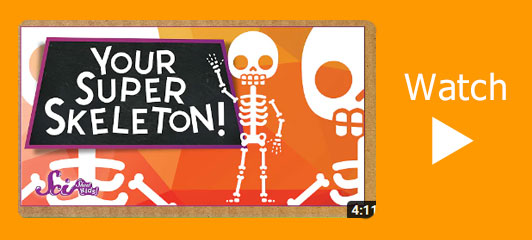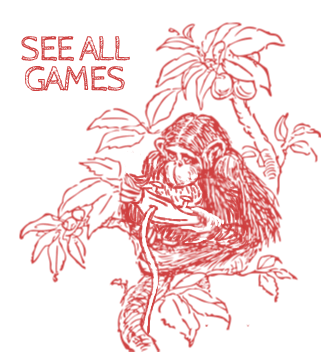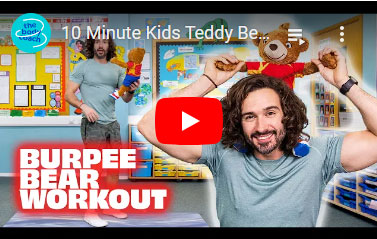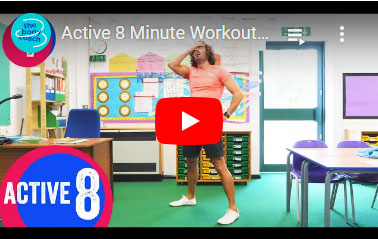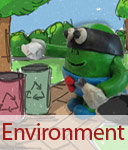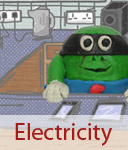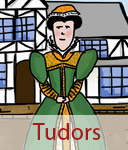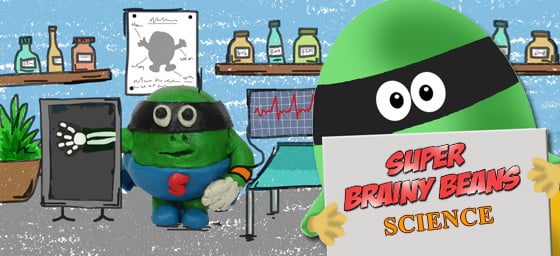
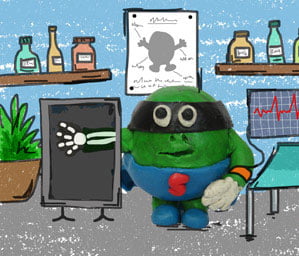
Human Body KS2
Year 3 & 4
Human Body KS2 kids learning at Primary School. Learn about the Human Body and the parts of the body for Key Stage 2, Year 3 & 4 children.
Pick a level
Skeletons, bones and muscles
Your body is like a clever machine, and inside, there’s a strong frame called the skeleton.
Your bones make up your skeleton. They give your body shape and support, helping you to stand, sit and move. Without bones, you’d be like jelly!
Some bones also protect important parts of your body:
- Your skull protects your brain.
- Your rib cage protects your heart and lungs.
To move, your body uses muscles. Muscles are stretchy tissues that pull on bones to help you move your arms, legs, fingers – everything!
Muscles and bones work together like a team.
When a muscle pulls, the bone moves – and that’s how we walk, jump, run and even smile!
Taking care of your bones and muscles by eating well, moving often, and staying active helps your body stay strong and healthy.
Keeping Active
Exercise is important in keeping your body healthy.
Exercising can make us feel happy and more positive and give us a lot more energy. It helps us to concentrate and it can also help us sleep well at night.
Keeping active keeps your heart, lungs and muscles strong and healthy. Exercise so that you feel your heart beating quickly. This means that your are making your heart stronger by working hard. It is also working your lungs too. Try some of the workouts below and see if you can get your heart beating fast.
Staying healthy
To keep our bodies working properly, it's important to live a healthy lifestyle. One of the best ways to do this is by eating a balanced diet and drinking plenty of water.
Our bodies need the right kinds of food to grow, move, and stay strong. That means eating the right amounts from the main food groups:
- Fruit and vegetables – full of vitamins to help us stay well.
- Carbohydrates – like bread, rice, and pasta, which give us energy.
- Proteins – such as meat, beans, and eggs, which help our bodies grow and repair.
- Dairy – like milk, cheese, and yogurt, to keep our bones and teeth strong.
- Fats and sugars – we only need a small amount of these for energy.
Eating a mix of these foods helps our bodies stay healthy, active, and ready to learn!
 What is a balanced diet?
What is a balanced diet?The human body needs a balanced diet to work properly.
 DK Find out!
DK Find out!What you need in a balanced diet, dairy, fats & sugars, fruit & vegetables.
 DK Find out!
DK Find out!What's in food? Learn about nutrients in the foods we eat.
What are fruit and vegetables?
 Fruit and vegetables gives us our vitamins and minerals. The vitamins and minerals do all sorts of things for our bodies. They help build strong bones and teeth, keep our body fighting off germs and help heal wounds.
Fruit and vegetables gives us our vitamins and minerals. The vitamins and minerals do all sorts of things for our bodies. They help build strong bones and teeth, keep our body fighting off germs and help heal wounds.
Fruits include: apple, banana, orange, grapes, strawberries
Vegetables include: carrots, broccoli, peas, cucumber, sweetcorn
One third of what we eat a day should be fruit and vegetables. A great way to measure this is to eat 5 handfuls of fruit or vegetables. Try it. How many handfuls of fruit and vegetables are you eating every day?

 Fruit & Veg colouring in
Fruit & Veg colouring inFruit & Veg colouring in sheets and guessing game for you to print and play
What are carbohydrates?
 Carbohydrates are foods that give us energy. The type of foods that give us energy are bread, potatoes, pasta, rice, cereals, cakes and biscuits.
Carbohydrates are foods that give us energy. The type of foods that give us energy are bread, potatoes, pasta, rice, cereals, cakes and biscuits.
Starches and sugars
Carbohydrates are split into two groups, starches and sugars. Starches are the ones that really give us our energy. Bread, potatoes, pasta, rice and cereals. One third of what we eat every day should be of starchy foods.
Biscuits and cakes are carbohydrates but they contain sugars. Your body only needs very little of these.
 What are carbohydrates?
What are carbohydrates?Bread, cereals, pasta, rice, and sweet foods are mostley carbohydrates.
What are proteins?
 Our body needs proteins to grow and repair itself. Proteins help protect you from getting ill and is what your muscles, organs, hair and skin are made of.
Our body needs proteins to grow and repair itself. Proteins help protect you from getting ill and is what your muscles, organs, hair and skin are made of.
Some of the types of foods that give us protein are chicken, ham, beef and fish. If you do not eat meat then you can find protein in beans, nuts, seeds, eggs, lentils and beans.
 What is protein?
What is protein?Foods such as meat, fish, eggs, beans and nuts all contain protein.
 Food facts
Food factsWhat foods are high in proteins? How do proteins work in our bodies?
What is dairy?
 Dairy foods come from milk and are important for keeping our bodies strong and healthy. They give us calcium, which helps build strong bones and teeth. Dairy foods also contain protein, which helps our bodies grow and repair themselves.
Dairy foods come from milk and are important for keeping our bodies strong and healthy. They give us calcium, which helps build strong bones and teeth. Dairy foods also contain protein, which helps our bodies grow and repair themselves.
Common dairy foods include milk, cheese, and yogurt. These can be eaten at breakfast, lunch, or as a snack. Some people drink plant-based alternatives like soya or oat milk – these can be healthy too if they have added calcium.
What are sugar and fats?
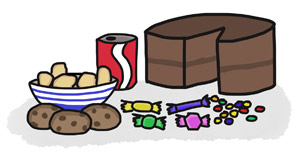 Sugar can be found in a lot of foods that we like the taste of but they are not necessarily good for us. Sweets, chocolate, honey, cakes and biscuits all contain too much sugar and we shouldn't eat too much of this everyday. Having too much sugar can be harmful to your teeth and cause tooth decay. Eating too much sugar can also cause you to put on weight which is bad for your health and can cause things like diabetes and heart disease.
Sugar can be found in a lot of foods that we like the taste of but they are not necessarily good for us. Sweets, chocolate, honey, cakes and biscuits all contain too much sugar and we shouldn't eat too much of this everyday. Having too much sugar can be harmful to your teeth and cause tooth decay. Eating too much sugar can also cause you to put on weight which is bad for your health and can cause things like diabetes and heart disease.
Fats give our body energy that is stored as a fat layer under the skin to keep us warm. Too much fat will cause a bigger layer under the skin and will cause us to look bigger than we should be. Fats can also build up in your arteries, the tubes that carry your blood around your body. When this happens your brain and heart doesn't always get the amount a blood flowing that it needs and this can cause problems with your health.
 Foods that have fats are butter, oil, cream, mayonnaise, ice cream, crisps, cakes and biscuits. In fact most food have some kind of fat. The here is a food label from a cereal box. Even though we know that cereal is a carbohydrate is still contains fat.
Foods that have fats are butter, oil, cream, mayonnaise, ice cream, crisps, cakes and biscuits. In fact most food have some kind of fat. The here is a food label from a cereal box. Even though we know that cereal is a carbohydrate is still contains fat.
Saturated and unsaturated fats
It's good to have a little bit of fat in what you eat and unsaturated fat is the better to have. Saturated fat is not good for our bodies and you can find saturated fat in many foods such as butter, cheese, ice cream, biscuits and cakes. Check out the food label again. It has 6.0g of fat in this cereal. 1.3g of that is saturated fat. Check your food labels at home, how much saturated fat does your food have?
 What is fat?
What is fat?Nuts and dairy foods, such as butter and cheese contain fat.
Making a balanced meal
A balanced meal should contain the right amount of these 5 food groups. Try swapping sugary foods with more healthy foods like fruit and vegetables.
 Change 4 Life
Change 4 LifeFresh, crunchy, satisfying bagels ÔÇô just what you want for a lunchtime treat.
 Kids cooking recipes
Kids cooking recipesGet those budding Jamies and Nigellas into the kitchen.
Types of teeth
We use our teeth every day to bite, chew, and speak. Humans have different types of teeth, and each one has a special job.
- Incisors - These are at the front of your mouth. These are sharp and help you bite into food.
- Canines - These are the four sharp teeth next to your incisors. There is one in each corner. They are pointed and used to tear food
- Molars & premolars - These are the bigger ones that sit at the back. They have flat surfaces to chew and grind food into smaller pieces.
All of these teeth work together to help us eat and digest food properly.
How well do you brush your teeth?
Ask in a pharmacy for a special tablet that turns all the plaque in your mouth coloured, and see if you can brush your teeth clean. Notice how long it takes. You should aim to brush your teeth for 2 minutes, twice a day. Find a timer and time yourself brushing.
NOTE: Please follow the instructions on the packet carefully.
 Teeth are used for..
Teeth are used for..Find out about the different ways we use our teeth.
 Types of teeth
Types of teethLearn about the different kinds of teeth in your mouth, and what they're used for.
 Build a mouth
Build a mouthLearn where in the mouth the different teeth are found.
 Looking after your teeth
Looking after your teethFind out how you can keep your teeth and gums healthy for life!
 Structure of a tooth
Structure of a toothLearn about the different materials that make up your teeth.
 Teeth Timeline
Teeth TimelineLearn when the different kinds of teeth will emerge.

